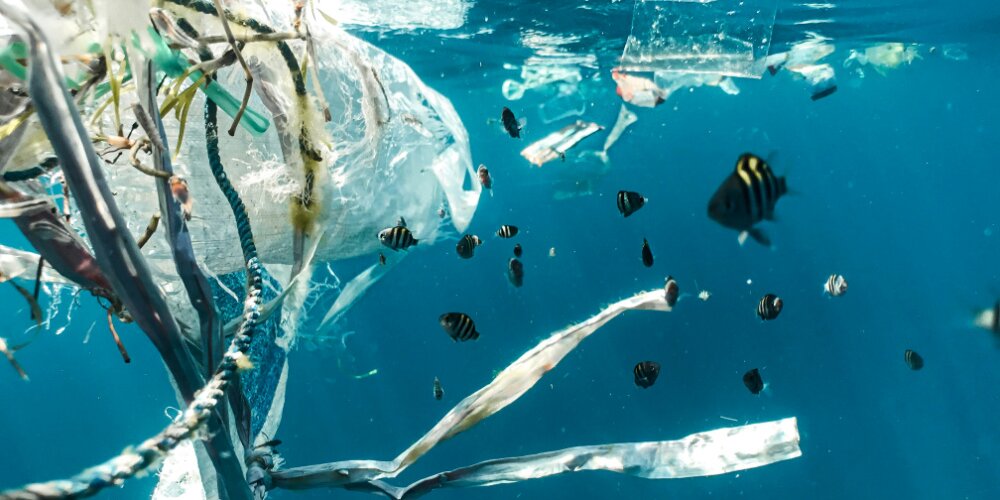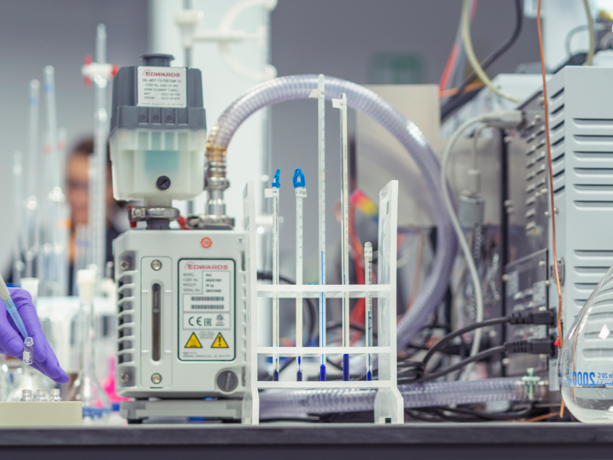Researchers Find an Innovative New Use For Plastic Waste

Single-use plastics are the bane of environmentalists the world over. This has led to scientists searching for ways to reuse, recycle, and otherwise manage plastic waste – all whilst searching for more sustainable alternatives.
However, new research from a team at the Institute for Chemical Reaction Design and Discovery at Hokkaido University could be the breakthrough required to reduce the total amount of plastic waste, and innovate important processes at the same time.
The method? Substituting single-use plastics, like shopping bags, as part of a reaction to detoxify harmful chemicals.
Conventional methods for the detoxification of hazardous chemicals frequently use radical initiators to kickstart the synthesis of molecules. However, the materials used for this are usually high-energy reagents and can be explosive; which means scientists need more protective measures and specific operating environments.
On the other hand, single-use plastics are abundant, convenient to use, and can make the process a lot safer for those involved. To test this theory, researchers at Hokkaido University used a piece of equipment called a ball mill. This is a machine that uses steel balls moved at high speed to apply intense mechanical force to break chemical bonds.
Using shreds of a plastic shopping bag, researchers were able to break the bonds and successfully complete the radical reaction. They also used their method for the dehalogenation of organic halides (which is where a halogen atom is replaced with a hydrogen atom). Utilising polyethylene, this method was able to initiate a self-sustaining radical reaction that removed several halogen atoms from a flame retardant, reducing the overall toxicity.
According to Associate Professor Koji Kubota, “the use of commodity plastics as chemical reagents is a completely new perspective on organic synthesis.” He continues with the belief that “this approach will lead not only to the development of safe and highly efficient radical-based reactions, but also to a new way to utilise waste plastics, which are a serious social problem.”
Overall, this research has serious implications for the future of environmental science, and the safety of chemical processes. As Professor Hajime Ito summarises their findings, their new approach has the “potential to foster the development of industrially attractive, safe, and highly efficient chemical processes,” by “using stable, cheap, and abundant plastic materials”.
Looking for professional materials testing services?
Then you’ve come to the right place. At The Lab, we have a vast array of analytical methods and technology to ensure you can get the information you require.
From advanced digital microscopy to differential scanning calorimetry, we have the equipment and expertise to help you and your business.
Choose The Lab for materials testing services today
For the latest news, information, and insights, explore The Lab’s News and Knowledge Hub…
Scientists Uncover New Way to Make Polymers Stronger | Researchers Design a New Class of Materials That Are Both Stiff and Shock Absorbing | New Treatment Could See Steel Alloys Become Both Stronger and More Flexible
- Author
- Dr Caroline Young
- Date
- 06/02/2024
